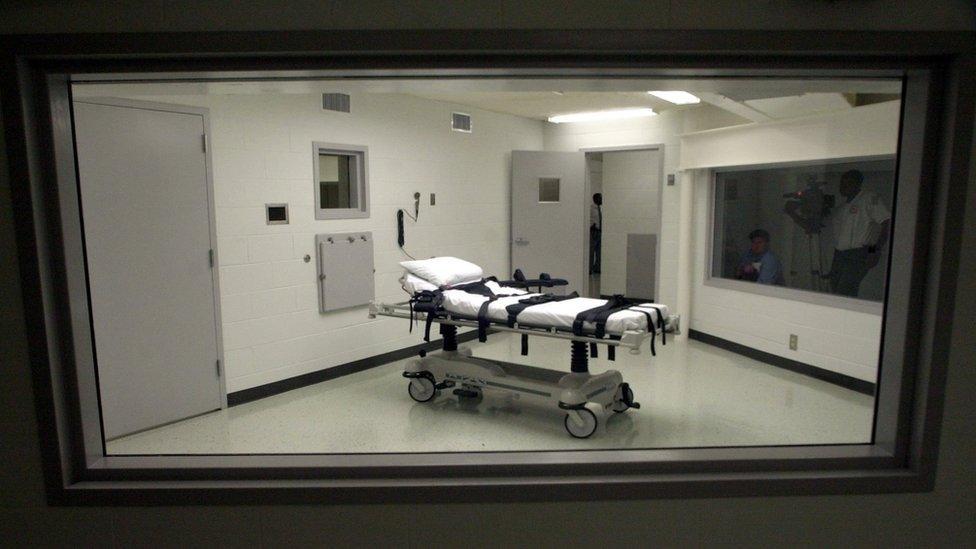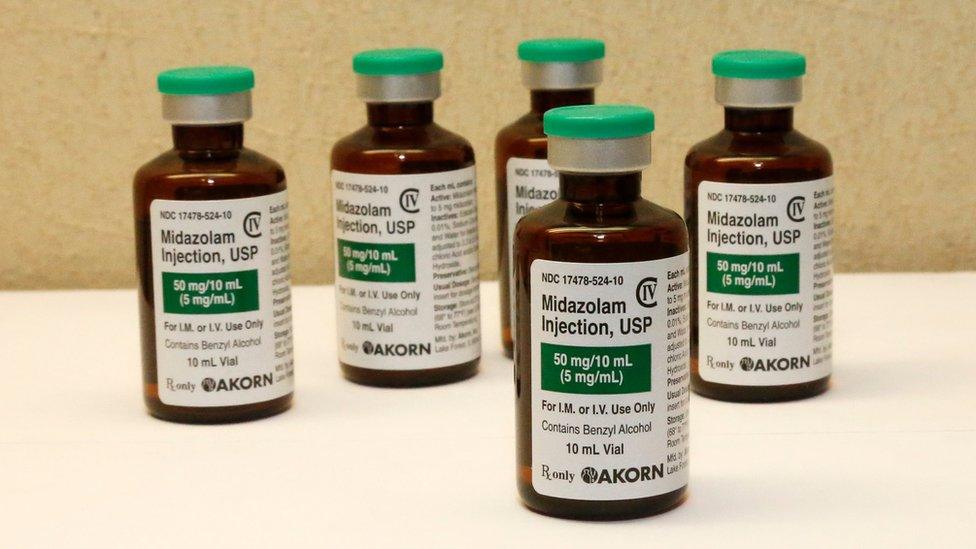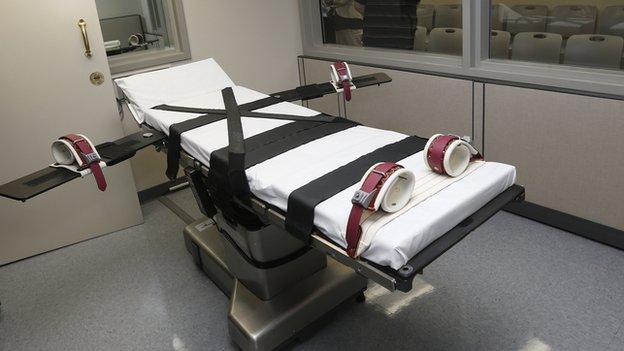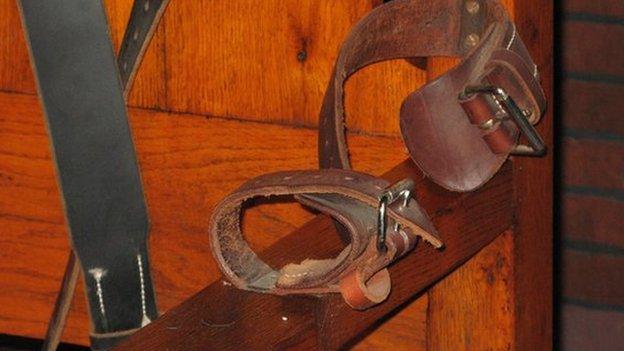Arkansas set to resume executions after 10-year hiatus
- Published

Executions by lethal injection are carried out in chambers like the one seen here in Alabama
The US state of Arkansas is set to resume executing death row inmates after a 10-year hiatus brought on by legal concerns and drug shortages.
Governor Asa Hutchinson on Wednesday set the execution dates for eight men.
On 21 October, two inmates are scheduled to die by the state's lethal three-drug cocktail, which includes the controversial drug midazolam.
Executions in the US have been delayed recently amid problems buying drugs as many firms have refused to sell them.
Twenty-seven people have been executed in Arkansas since 1976 when the US Supreme Court reintroduced the death penalty.
The dates were set following the request last week of Attorney General Leslie Rutledge.
She sent letters to the governor telling him that the condemned inmates had run out of appeals options and that state officials had acquired enough of the needed drugs to carry out the punishments.
The state still faces one lawsuit that challenges a new law that allows the state to conceal how it obtains the lethal drugs needed to perform the execution procedure.


US states have found it increasingly difficult to get drugs needed for lethal injections
More on the death penalty:

However, the US Supreme Court and other federal courts have rejected similar challenges in other states.
Lawyer Jeff Rosenzweig represents the eight condemned inmates as well as a ninth individual whose case is still in the appeals process.
Mr Rosenzweig has said that he plans to file for the executions to be delayed.
On 1 July, the state's Department of Correction said it had enough of the lethal drugs it needed to perform the executions.
Its stockpiles include a sufficient supply of midazolam, which has been criticized since executions last year in Arizona, Ohio and Oklahoma did not go as planned.
In June, the US Supreme court approved the drug for continued use when it rejected a challenge from three Oklahoma death-row inmates.
- Published8 June 2015

- Published25 July 2014

- Published23 May 2015
